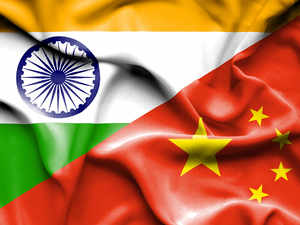India provides opportunity to nations looking to diversify supply chains from one country or region: Foreign Secretary

NEW DELHI: Foreign Secretary Harsh Vardhan Shringla without naming China, which has emerged as the manufacturing hub of the world, has suggested that countries ”will be looking for maximum diversification of their production and supply chains in the medium to long term, weaning away from extreme dependence on any one particular country or region.”
He emphasised that this phenomenon provides India with an important opportunity to develop itself into a low-cost manufacturing hub which will position India as the preferred investment destination.
Shringla further pointed out that over-reliance on a particular country or region for sourcing Indian imports, or as markets for Indian exports, requires a re-think.
“In the changed times and in the event of disruptions in our supply chains, countries around the world will be looking for maximum diversification of their production and supply chains in the medium to long term, weaning away from extreme dependence on any one particular country or region,” Shringla suggested in a speech delivered to NASSCOM virtually on Wednesday.
“This offers us with an important opportunity. Developing India into a low-cost manufacturing hub will help us position ourselves as the preferred investment destination,” he said and referred to India’s highly functioning democratic systems and high levels of transparency in governance which are important to build investor confidence. It is pertinent to point out here that China’s opaqueness has been often been questioned by governments and business groups from across the world.
“Combined with the ease of doing business and easily accessible capital, India is a promising manufacturing destination. We have to bank on our strengths and plug in the gaps, wherever possible.”
Pointing out that Indian industries and business chambers are an important part of economic diplomacy and global economic outreach, the Foreign Secretary noted, “Broadly, the Indian industry is expected to think of business and lifestyle models that were easily adaptable, ensuring that business and commerce can run smoothly, even in the times of a crisis.”
“Companies and industries, across the world and even in India, are being pushed to ensure that their resilience capabilities are developed in order to face the repercussions of unexpected events and to maintain elasticity helping them to return to the original state of business quickly. This will require initiatives that restructure the internal working of the businesses and their wider networks.”
Referring to anxiety among Indian citizens and industry about restrictions on H1B visa, Shringla said, “the Government of India has closely consulted all stakeholders and engaged with the US Government on this issue. Prime Minister had taken this up, along with the issue of the totalization agreement, during the visit of President Trump to India in February 2020.”
“The onset of the COVID-19 pandemic in the U.S. and the attendant impact on the U.S. economy has led to a change in the situation. We need to adopt a realistic yet effective approach. Accordingly, our approach has been to work at the diplomatic level and deal with each specific issue one at a time. We were able to intervene early on in our lockdown with the US Government on the issue of temporary relief for H1B visa holders whose visas were expiring in this period, on a case-by-case basis.”
“…High skilled Indian professionals working in the US through H1B and related non-immigrant visa regimes bridge the crucial skill gap and provide technological and competitive edge to the US companies. We have also highlighted that high-skilled Indian professionals are engaged in the fight against COVID across various fields including doctors, nurses, tech workers developing solutions for companies fighting the epidemic. We hope the review of non-immigration visa by the US Government will take into account the long term benefits of H1B visa for US competitiveness and not affect provision of essential services at this critical hour.”
This month’s NFAP (National Foundation for American Policy) study has shown that the unemployment rate for workers employed in Computer Occupations was actually lower last month than it was in January 2020. Similarly, the CATO study’s results on H-1B employers paying the professionals about 20% higher than the average market wage have also been highlighted.
Source: indiatimes.com

